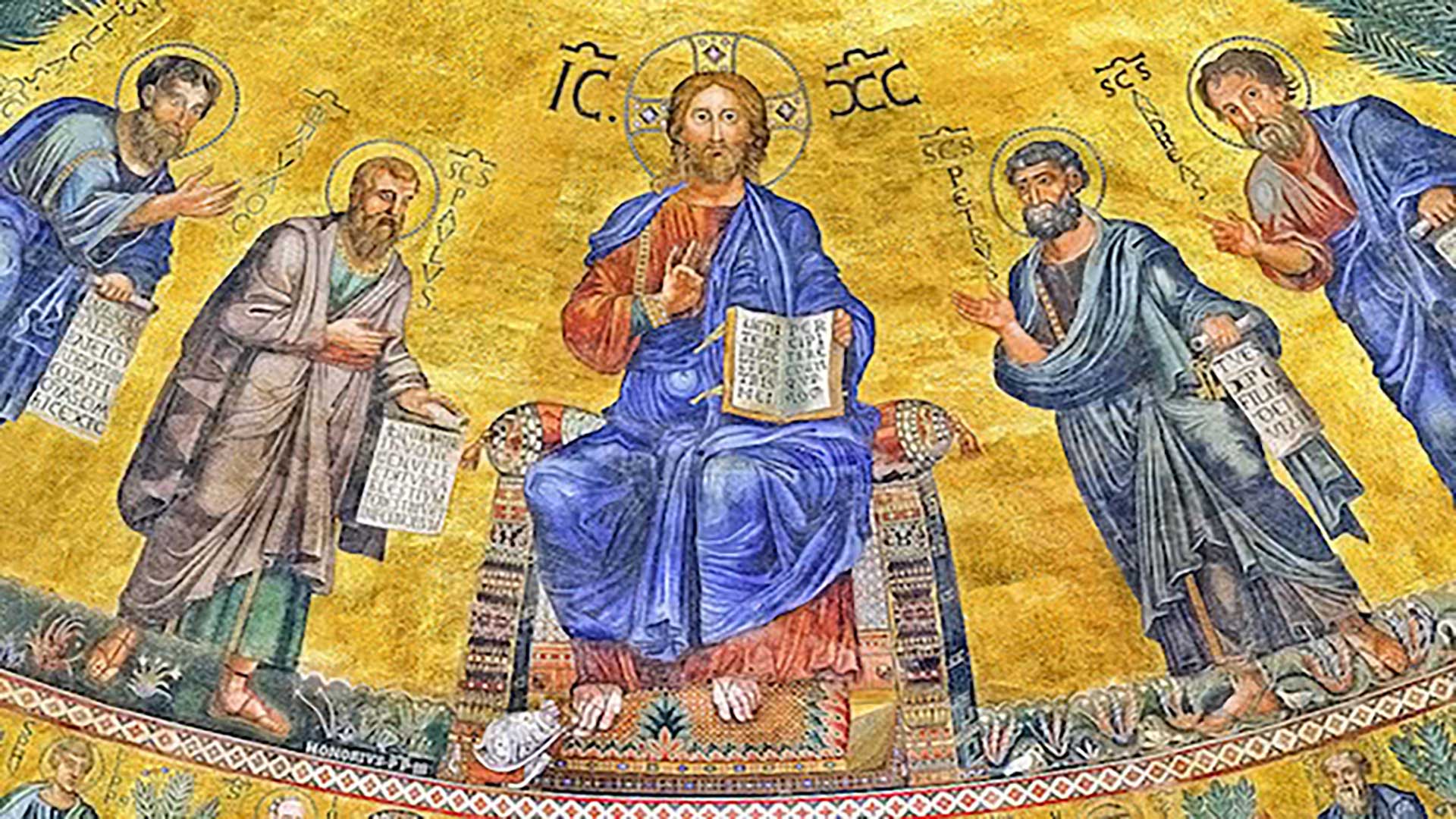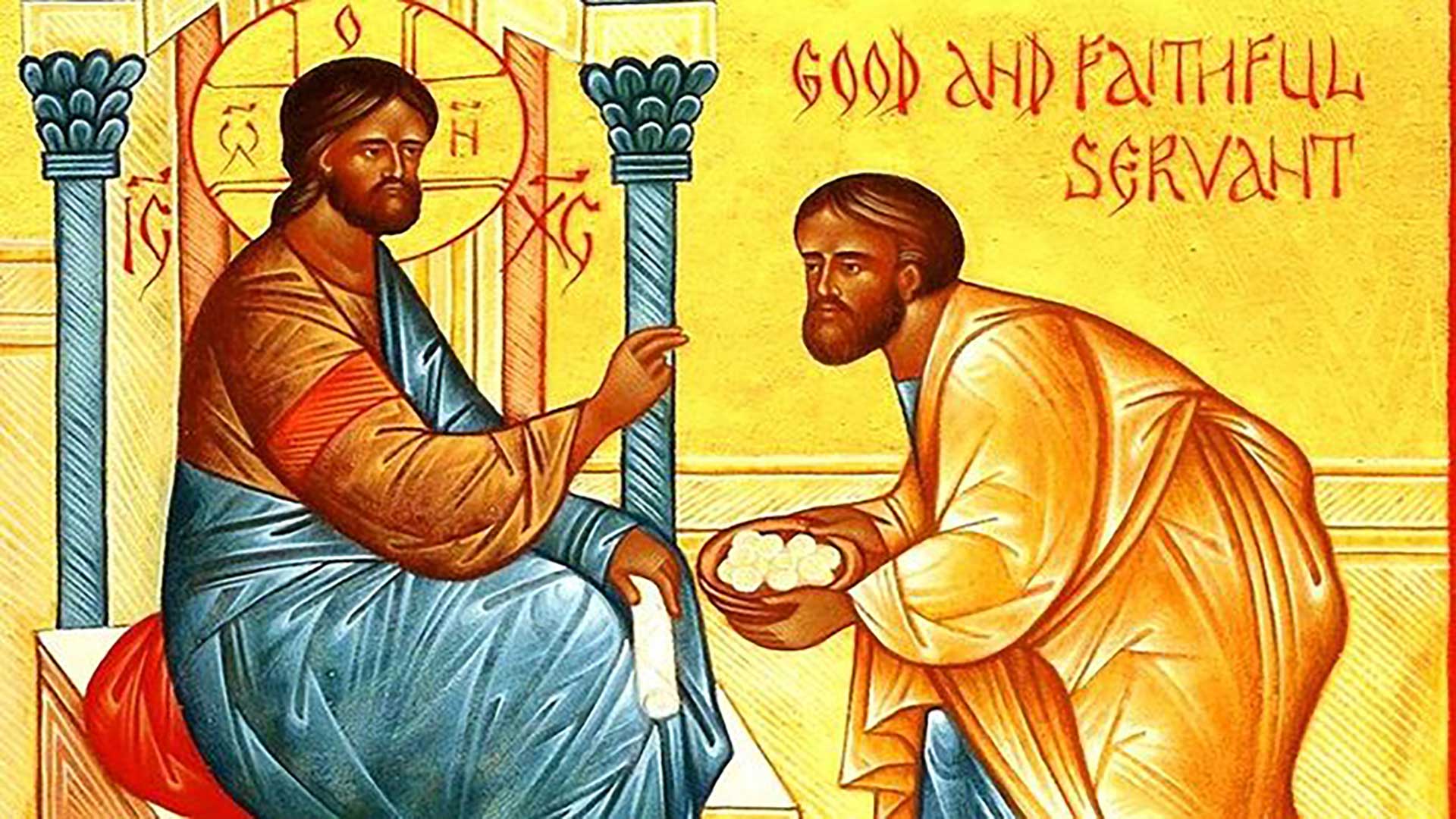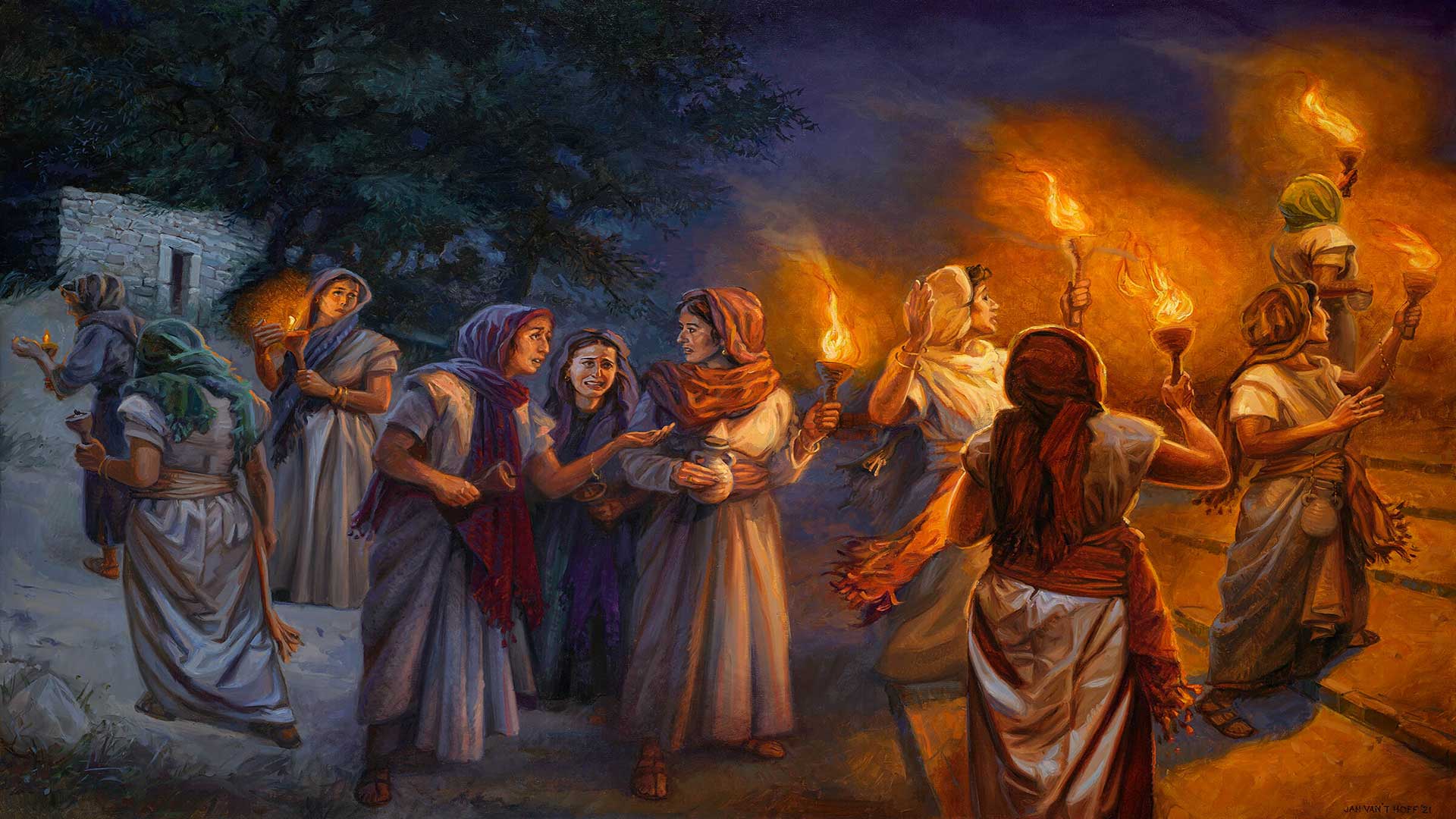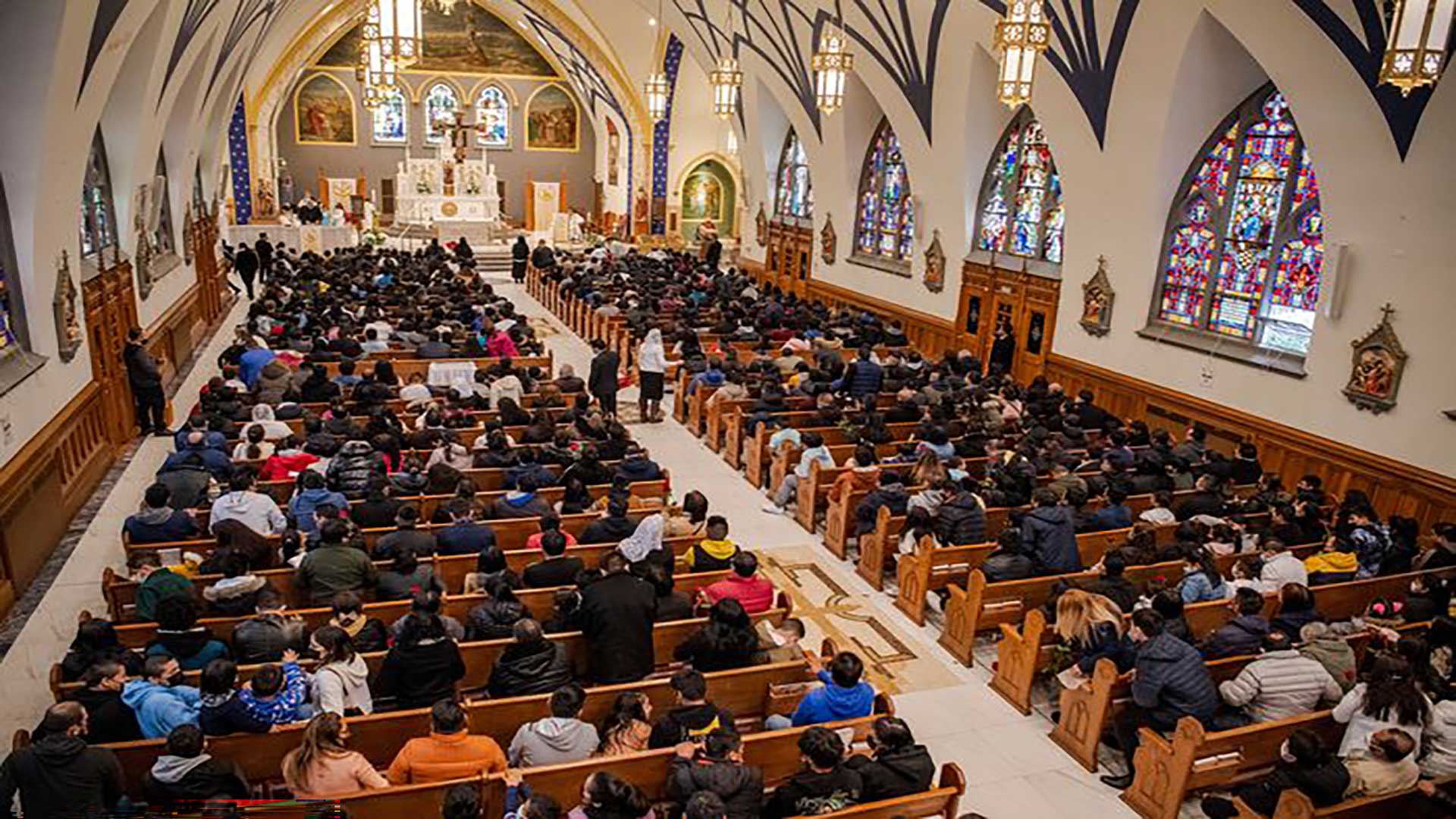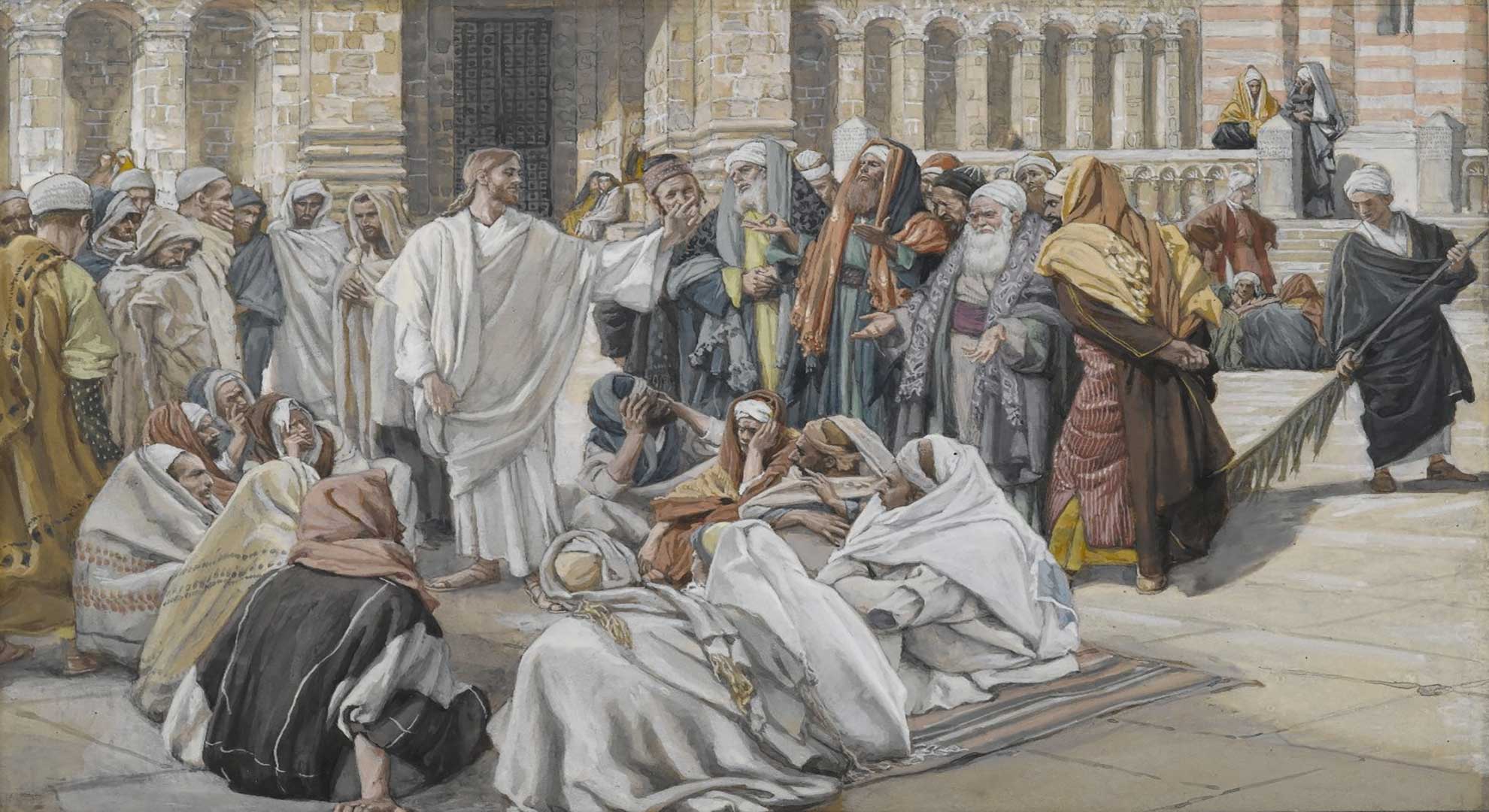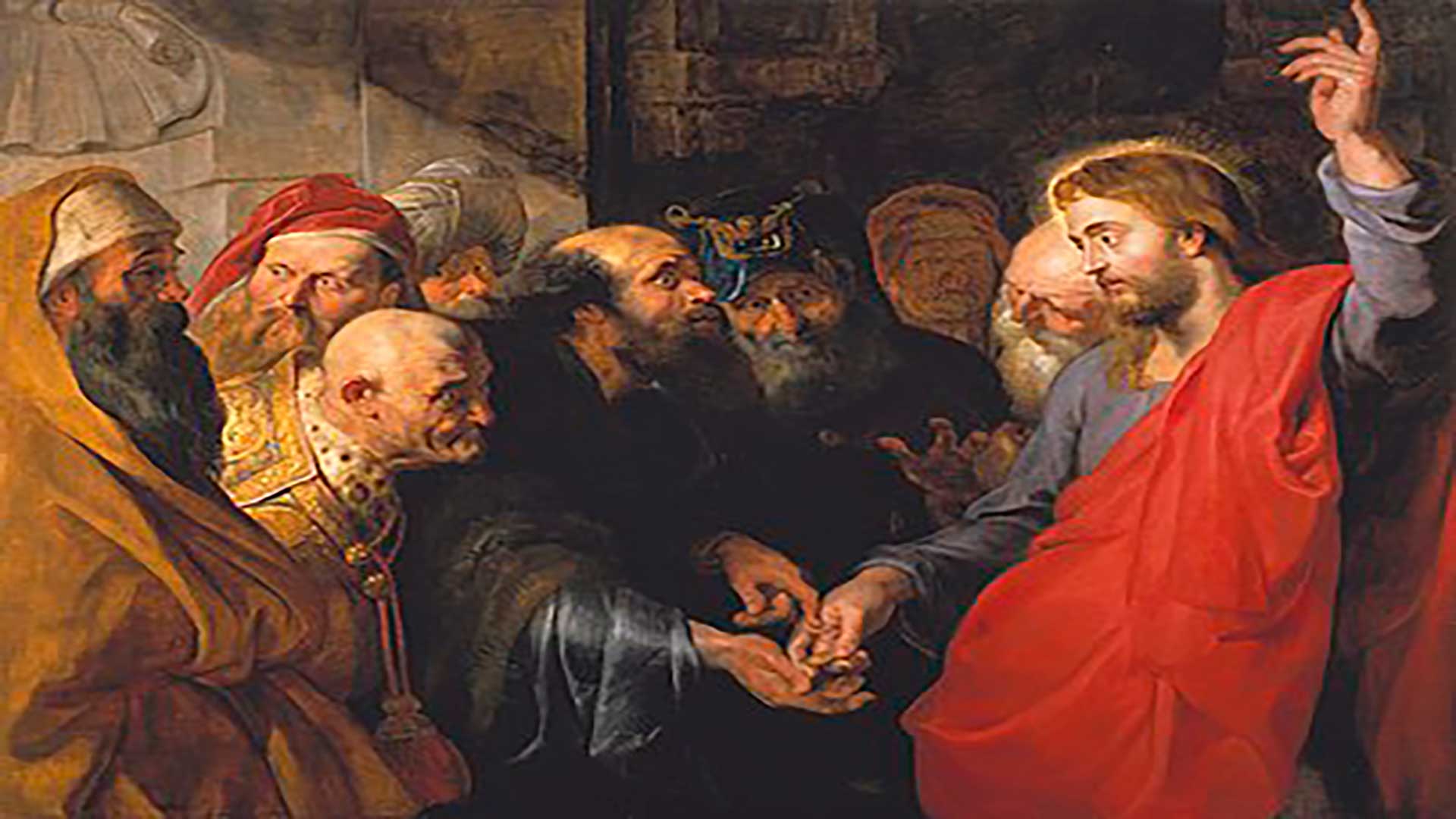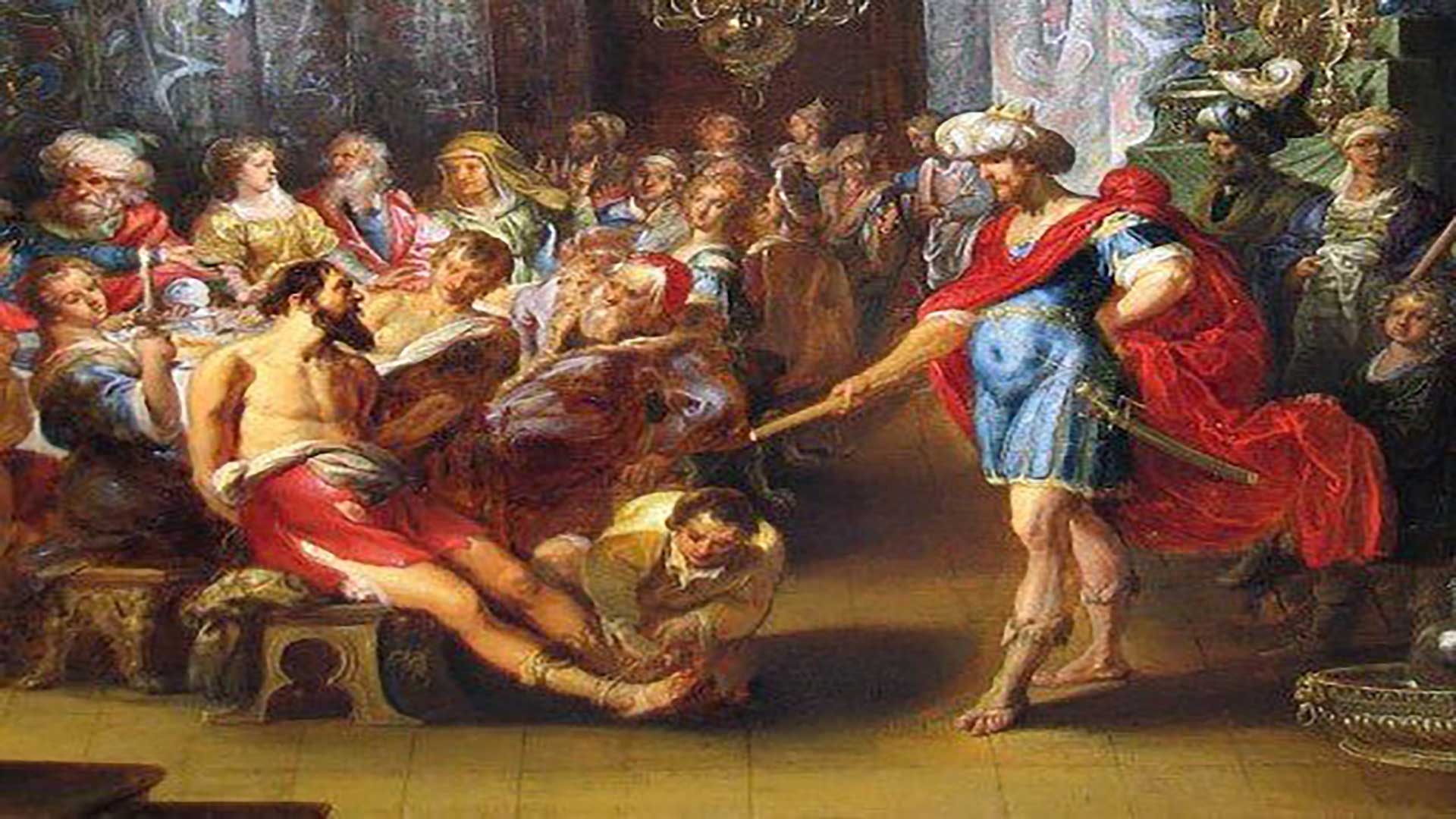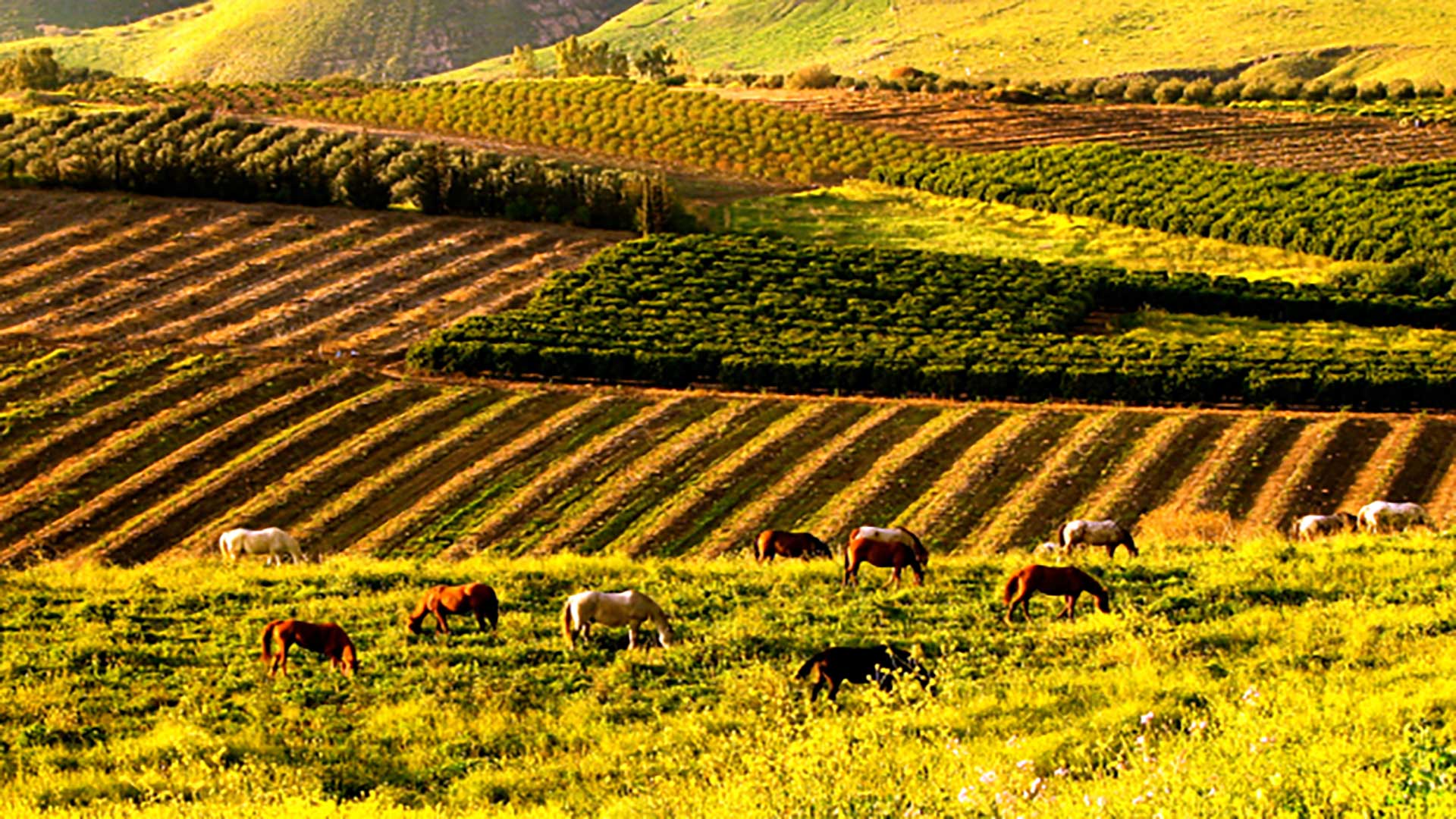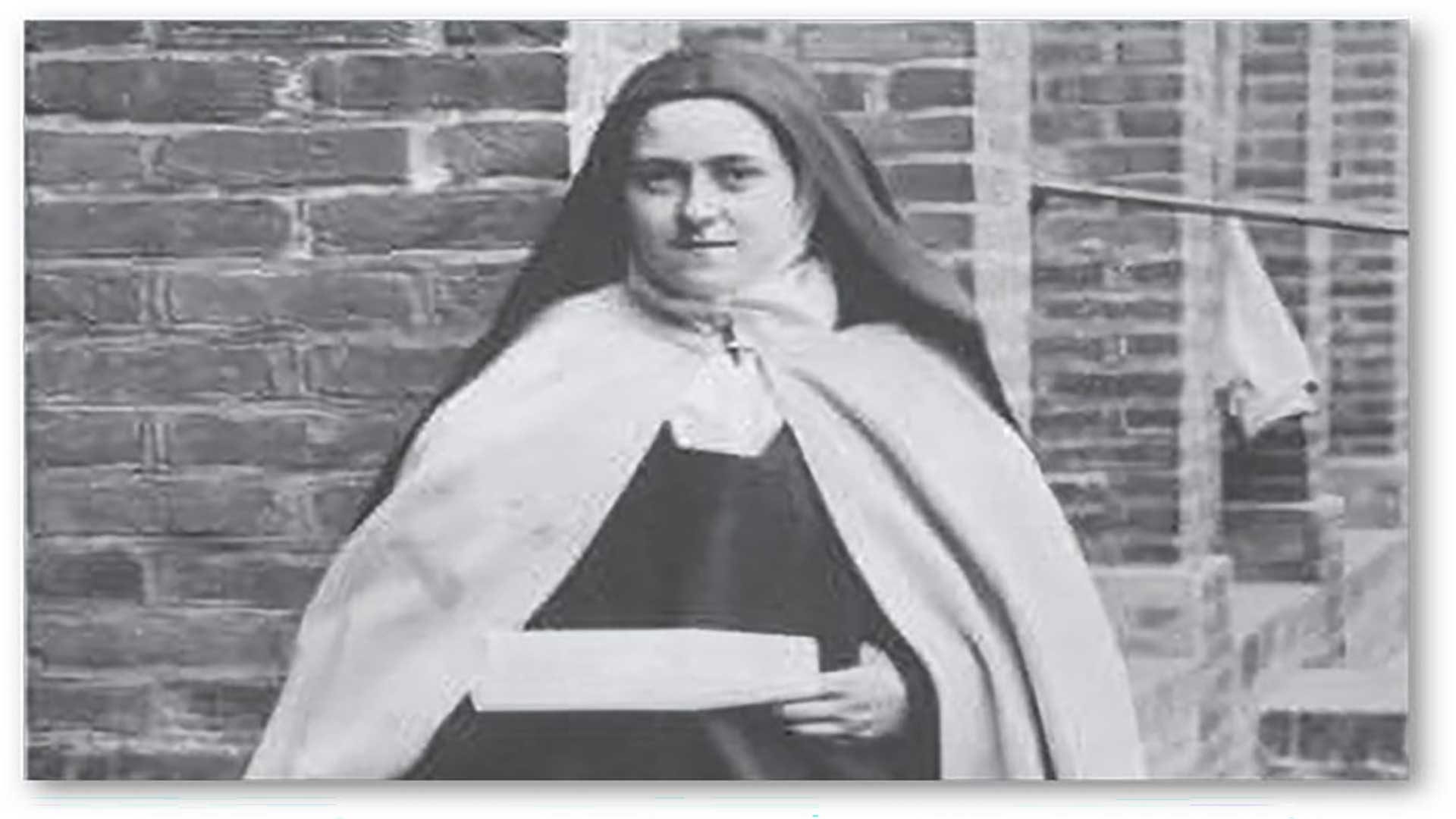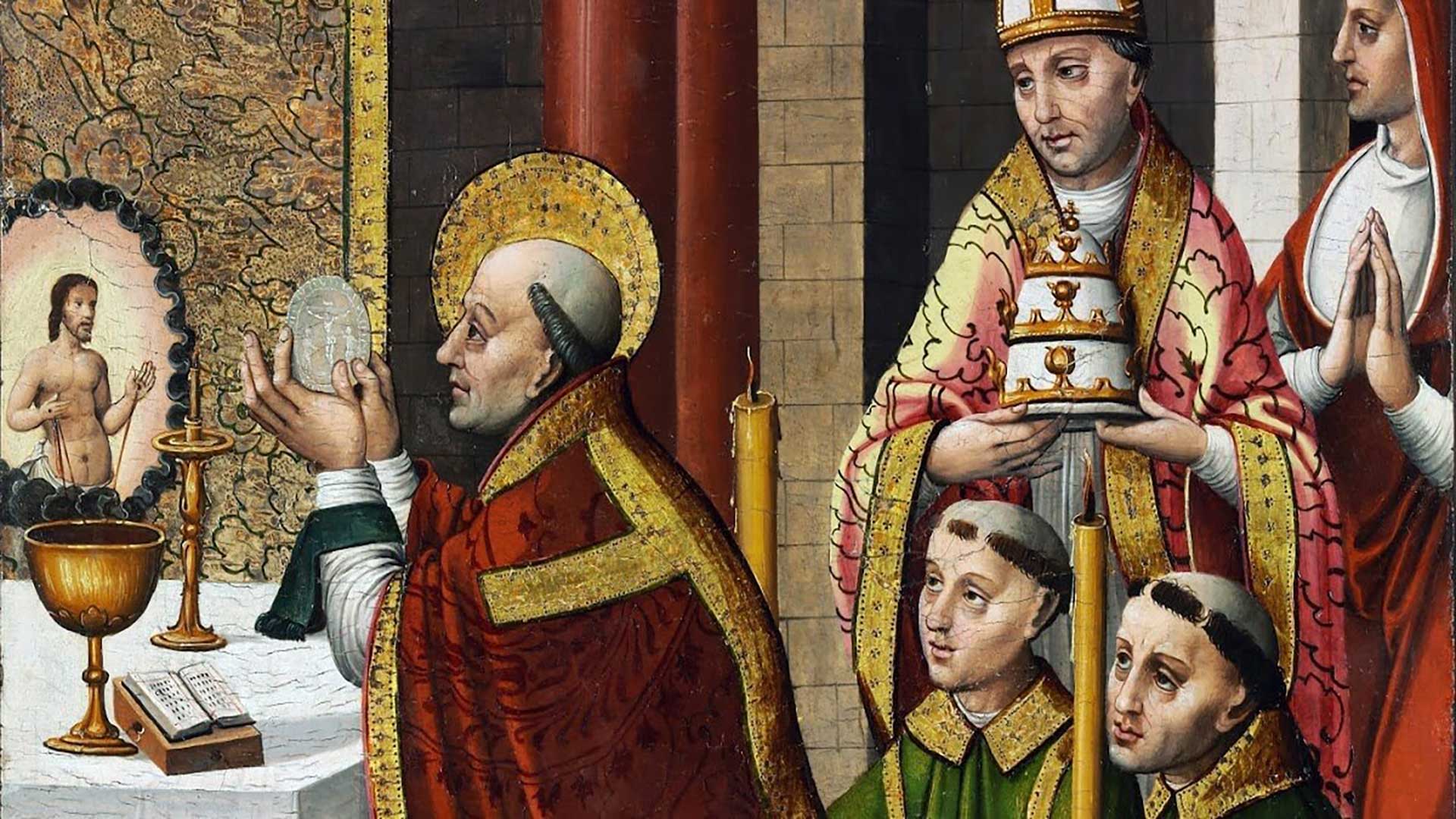Glorious end, splendorous beginning
Today is the thirty-fourth Sunday of Ordinary Time and last of the liturgical year. Whereas ‘thirty-four’ is just another number, ‘last’ might arouse emotions. Hence, after experiencing a year of highs and lows, or a spectrum of emotions produced by the liturgical seasons, it is time we declared Our Lord Jesus Christ as the king of our minds and hearts. Which could be another way of looking at Christ as Universal King.
To many today it may feel outdated and pointless to think in terms of kingship. That is because those with vested interests have led us to question that old and deep-rooted tradition. It is undeniable, however, that kingship goes back to the Old Testament where God was keen on a godly leader to shepherd His people. The choice of David who was a shepherd in the literal sense brought alive the concept of a later shepherd-king who would be the Messiah. But particularly in our day and age, the idea is not to be confined to the spiritual realm but rather to be contrasted with phoney leadership in the secular realm.
From the First Reading (Ezek 34: 11-12, 15-17) it is amply clear that a true king ought not to be oppressive or tyrannical (as the kings of Israel indeed were, in the days about which Ezekiel writes); on the contrary, a good king ought to be sincerely interested in the welfare of his people, and like a shepherd, zealously guard his flock, of which Psalm 23 is the epitome. The Lord says that He Himself will seek out and rescue His scattered sheep. He will “feed them in justice” and, very importantly, “judge between sheep and sheep, rams and he-goats”.
That feeds into the Gospel idea of the Last Judgement as depicted in the last of the trilogy of parables (Mt 25: 31-46) that Our Lord related before He walked up to Calvary. The Lord announces that “before Him will be gathered all the nations, and He will separate them one from another as a shepherd separates the sheep from the goats, and He will place the sheep at His right hand, but the goats at the left.”
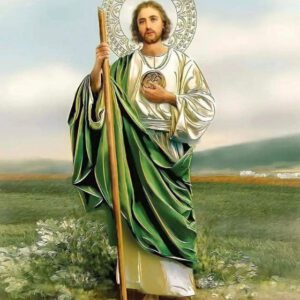
As in the parables read last two Sundays, those who by their acts of love (corporal works of mercy) towards the little ones please the Lord will be rewarded: “inherit the kingdom prepared for you from the foundation of the world”. On the other hand, judging between sheep and sheep, those who have not proved worthy of God will be cursed “into the eternal fire prepared for the devil”. Strong words that we cannot afford to pass over.
In short, if the unrighteous will go away into eternal punishment and the righteous into eternal life, it befits us to consider whether we are ready for the day of reckoning – whose time we do not know! Are we prepared to set our eyes on Heaven and sacrifice some things on earth? Now is the time and the moment to decide. This Advent, only a profound spiritual preparation will qualify us to receive the Lord God of Hosts at Christmas.
How well the Second Reading (1 Cor 15: 20-26, 28) rewinds to the time when Adam, who brought death to humankind, and races back to when Jesus the New Adam brought us new life! St Paul was talking about the resurrection of the dead, about all that stands depleted and will be vivified by the Son of God. It is not physical death alone but the death of our consciences that is at stake and which only the Lord can heal.
Finally, behold the history of the future: Jesus, after destroying every rule and every authority and power, and having reigned until He put all His enemies under his feet, He will destroy death and deliver the kingdom to God the Father. And then, “when all things are subjected to Him, then the Son Himself will also be subjected to Him who put all things under Him, that God may be everything to everyone”.
Today we are given a foretaste of a glorious end that will herald a splendorous new beginning, through Jesus Christ Our Lord and Universal King.
Good and Faithful Servants
Still on the theme of wisdom, on this penultimate Sunday of the liturgical year, the Church urges us to plough through life with faith and hope in the Lord. Goodness and faithfulness pay dividends.
The First Reading (Prov. 31: 10-13, 19-20, 30-31) sings a paean to the feminine gender. It provides a model of a worthy wife far more precious than jewels! She does all she can for her husband and family. Her worth goes beyond mere beauty and charm, for she is strong, skilful, hardworking, trustworthy, and above all, charitable and God-fearing. A wife, mother and homemaker like that is wisdom personified. She deserves to receive her hard-earned reward and to be praised in public for what she has accomplished.
In a male dominated Israel, women must have welcomed those verses as a breath of fresh air. In our day and age, however, they may be dismissed as a load of hot air. But that is a flawed reading, for the same degree of virtue is expected of man as well. And perhaps the best earthly reward a woman can hope for is a like-minded husband, whose responsibilities the Evangelists and St Paul have carefully delineated. Man and woman thus qualify to work hand in hand to instal the values of the kingdom of heaven here on earth.
Even though Psalm 128: 1-5 dwells upon the blessings in store for the God-fearing, we hasten to point out that fear of the Lord is not a negative feeling but one of reverential respect. It is a life-giving, not a paralysing, awe, which helps us stay on track and not depart from the Lord’s precepts. Such a benevolent fear is a far cry from the useless servant’s neurotic fear, as seen from the Parable of the Talents that makes up today’s Gospel text.
In the said Parable (Mt 25: 14-30), a man going on a journey for an unspecified period of time (symbolic of Jesus, whose Second Coming we await) entrusts his talents to his three servants. Interestingly, a talent was then a denomination of weight (of any precious metal), not a natural aptitude or skill, as we know it now.[1] And how did the threesome look after the traveller’s estate? The two to whom he had assigned five and two talents, respectively, traded intelligently and doubled their number, whereas the servant to whom only one had been delegated miserably failed to even make a start…. Truly, from those who have received much, much is asked for in return, both on earth and in Heaven: a good reason not to quibble about uneven distribution!

When we look at those talents as material wealth, we at once understand that it is natural that we grow them. But then, when we regard them as abilities, be they physical, social or intellectual, with which God has endowed His children: how many cultivate them, let alone be grateful for them? How many are used for the common or greater good, be it in church or civil society, to help usher in the kingdom of God?
To judge whether or not some activity is worthwhile, the Gospel values should be our benchmark. Such an attitude would emphasise sharply the precepts of God’s kingdom. It would also embolden us to share our light and not hide it under a bushel.... Are we, then, good stewards of the spiritual software that God has provided us with? Do we value the Sacraments, cherish the Word of God, follow the Commandments? In other words, are we committed Christians?
We can’t afford to take it easy. Hence, in the Second Reading (1 Thess 5: 1-6), St Paul stresses the importance of vigilance, stating that “the day of the Lord will come like a thief in the night.” The Day of the Lord is a concept that comes down from the prophetic and apocalyptic visions of the Old Testament. The Apostle proceeds in opposites, letting us see that the more we think there is “peace and security”, the more we are surprised by disasters. Which makes of Jesus our one and only spiritual insurance. So, even if a situation looks bleak, the children of the light will see the thief coming, as long as they remain “alert and sober”.
Eternal vigilance is indeed the price of liberty. When there is no vigilance, individuals, families and associations, press, education and the war against forces of evil stand compromised and the Kingdom jeopardised. And considering that the roll will be called up at the Final Judgement (cf. next Sunday’s Gospel at Mt 25: 31-46), happy are those who, like Emperor Dom Pedro II of Brazil, can say:
E entre visões de paz, de luz, de glória,
sereno aguardarei no meu jazigo
a justiça de Deus na voz da história!
(And amidst visions of peace, of light and of glory,
Serenely will I await in my tomb
the justice of God in the voice of history!)
-o-o-o-o-o-o-o-o-
Banner: https://orthochristian.com/106593.html
[1] For the etymology of the word ‘talent’, see https://www.oed.com/dictionary/talent_n?tl=true
With Joy and Anticipation
Several themes emerge from the Readings of the thirty-second and third last Sunday of the liturgical year: commitment, faithfulness, perseverance, readiness. Since they are all hallmarks of the wise, Wisdom may well be considered the overriding idea.
The First Reading (Wis 6: 12-16) is about divine wisdom. The anonymous author of the deuterocanonical Book of the same name effectively resolves the question of the happiness of the just and the misery of the unjust. Placed as he was in an ambience that prized a materialistic lifestyle, he counters it with a rational basis for a life of faith.
The said author was possibly a Jew based in Alexandria, an Egyptian city that was in the grip of worldly-wise Hellenism. To the Greeks, wisdom was only a means to divine knowledge and contemplation, whereas to our author wisdom was indeed a way of life. He goes on to identify wisdom with the Spirit of God. This is one of the many aspects of our religion that makes it hugely different from the idolatrous ones.
Wisdom is thus a form of divine revelation; it is God acting in the history of the world created by His wisdom. Wisdom has prefigured the love of God and culminated in Jesus Christ, who is therefore called the “Wisdom of God” (cf. 1 Cor 1: 24, 30). It is this Wisdom Incarnate who exhorts us in the Parable of the Ten Virgins: “Watch, therefore, for you know neither the day nor the hour.”
These words wrap up today’s Matthew-exclusive Gospel story (Mt 25: 1-13) of a sundown wedding ceremony. Traditionally, a bridegroom, his family and friends would walk to the bride’s home for some rites. Thereafter, the bride would walk back with them, in a nuptial procession wending through the streets, to the groom’s home. The attendees carried their own torches, and on arrival, bridesmaids welcomed and assisted the bride.
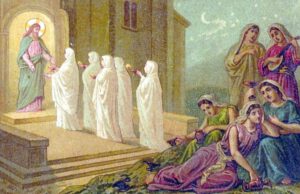
Interestingly, the parable makes no mention of the bride: maybe because the story begins with the groom’s return journey. Besides, the focus is not on the bride but on the preparedness of the bridesmaids. And at what time the bridal party would arrive at the groom’s house was anybody’s guess; so, it was necessary for the bridesmaids to be in readiness. Sadly, five of them were not; the five haves refused to share, so the have-nots scurried for oil at the last minute. They were locked out and disowned by the groom.
When, where and why did Jesus tell this parable? It is a continuation of a dialogue Jesus was engaged in with his disciples (cf. Mt 24) regarding the end times. He wanted them to know that the ten (number of completion) virgins (all Christians, and symbolising purity) who have the oil (grace) when the groom (Saviour) comes again will be invited to the wedding feast (Kingdom of Heaven). Of course, Jesus is the Bridegroom, and His Bride, the Church (a variation of God as Husband of Israel, in the Old Testament).
As for us in real time, what should we find ourselves doing as and when the world ends? Nothing special; we should be going about our daily life normally. And what about those who have gone before us? In the Second Reading (1 Thes 13-18), St Paul states that we have no reason “to grieve as others do who have no hope.” To show that our ancestors have not died in vain, he says: “The dead in Christ will rise first; then we who are alive, who are left, shall be caught up together with them in the clouds to meet the Lord in the air; and so, we shall always be with the Lord. Therefore, comfort one another with these words.”
However, to be able to comfort one another, we ought to be one in mind and heart! Are all Christians on the same page as regards doctrine? Are the Ten Commandments cherished and practised? Do we think about Heaven, the angels and the saints as a living reality? Do we believe that we ought to know God, love and serve Him? Can we say with the Psalmist, “For you my soul is thirsting, O God, my God”? Are sin and grace for real, or inanities?
As we approach the end of yet another liturgical cycle, the Readings of the last three Sundays (12, 19 and 26 November) veer towards the nature of God’s kingdom in the end time, in Matthew 25: the parable of ten virgins (Mt 1-13), the parable of talents (Mt 14-30), and the parable of the last judgment (Mt 31-46), respectively. With this excellent runup to Advent, let us wait with joy and anticipation for the Lord’s coming.
Authentic and Zealous
The Temple of Jerusalem is an important reference point. The one built by Solomon was destroyed in 587 B.C. when the Babylonians torched the city and sent the Judean leaders into exile to Babylon. In 539 B.C. Cyrus, king of Persia, absorbed the Babylonian empire and permitted the Jews to rebuild the temple in their land. On reconstructing the temple in c. 515 B.C., the Jews enjoyed an era of peace but soon became apathetic as regards the divine cult.
Hence, in the First Reading (Mal 11, 22 – 12, 2), Prophet Malachi (the last in the traditional list of minor prophets) censures the people and more so the priests, who were leaders and interpreters of the Scriptures. His discourse begins with an accusation and ends with a sentence: “O priests, this command is for you. If you will not listen, if you will not lay it to heart to give glory to my name, says the Lord of Hosts, then I will send the curse upon you.”
No doubt, we could extend this to ourselves, for we all have the priestly vocation; but here Malachi addresses the sacramental priesthood in particular. His words make one stop in one’s tracks; hence, nothing more dare I say except hope and pray that we turn a new leaf.
Whereas Malachi observes that the priests have been teaching wrong doctrine and misguiding the people, in the Gospel (Mt 23: 1-12) Jesus states that the scribes and the Pharisees have been teaching the law but failing to practise it. They who sat on Moses’ seat – as teachers and leaders – had the moral duty to practise the law (“heavy burdens” or duties) that they imposed on their people. Jesus draws a long list of tricky situations involving those erring leaders and ends with a startling principle: “He who is greatest among you shall be your servant; whoever exalts himself will be humbled, and whoever humbles himself will be exalted.”
Meanwhile, what did Jesus mean by those intriguing words, “father” and “master”? Is there a ban on their use? Jesus only reminds us that none should usurp the authority that belongs to God, our Father, and Himself, our Divine Master.
St Paul in the Second Reading (1 Thes 2: 7-9, 13) states what it takes to be an apostle: self-sacrifice. However, we must realise that we should not exploit the apostle’s gentleness and mercy; on the contrary, the people ought to show authenticity, fairness, reciprocity, sincerity, gratitude.
Our human condition, fragile as it is, does not make life easy, nor does the Word of God easily sink into us and transform us. That is why what happened millennia ago repeats itself. On the other hand, we must not be discouraged but persevere in letting the Word bear fruit in us. Our reference point is no longer the physical Temple of Jerusalem; Jesus teaches us to live as living temples of God, authentic and zealous.
Love: for God’s sake
As we continue reading from the Gospel of St Matthew (22: 34-40), we see how Jesus counters his adversaries. He had just finished silencing the Sadducees on the question of the resurrection of the dead, when he was assailed by the Pharisees. They wanted Him to pronounce on the ‘Great Commandment in the law’. Jesus assigns equal importance to the two commandments known in the Old Testament and focusses on them the entire content of the law. Loving God with our heart, mind and soul is the first and great commandment, He said, and by the second, which is like it, we ought to love our neighbour as ourselves.
But who is our neighbour? From the parable of the Good Samaritan, we learn that our neighbour is essentially a person in need. In our materialistic age, we think of money as the need, but that simply is not the case. Very often, the other yearns for our love, our time, just a little word or a listening ear. It may not even require our physical presence; sometimes a tinkle, a WhatsApp message, a comforting thought from afar, could save the day. We will never know in advance who we are called to serve, when and how. But serve we must; and those that we serve are our neighbour, and service is the expression of our love.
But then again, what is love? Someone has said: “Love is the most beautiful thing to have, hardest thing to earn and most painful thing to lose”; but far from defining, it makes love seem elusive. In 1 Corinthians 13: 4-7, some of love’s attributes make it palpable: “Love is patient; love is kind; love is not envious or boastful or arrogant or rude. It does not insist on its own way; it is not irritable; it keeps no record of wrongs; it does not rejoice in wrongdoing but rejoices in the truth. It bears all things, believes all things, hopes all things, endures all things.”
Palpable but not defined. That is because love is a many-splendored thing, largely misunderstood and therefore clichéd, especially in our times. Several Catholic thinkers have dwelt upon this inexhaustible topic, and more recently, in his book The Four Loves, C. S. Lewis has distinguished between Affection, Friendship, Eros and Charity, showing how one merges into another, and how one can even become another. More importantly, he underlines that the first three – human loves – can be tainted if not accompanied by the sweetening grace of divine love, Charity. And, as St Ignatius put it: “Love is shown more in deeds than in words.”
We understand love more concretely through the First Reading (Ex 22: 21-27) in which God forbids us to wrong a stranger or oppress him; to afflict a widow or orphan; or to torment a poor man. They are personae miserabiles – people in difficult social, economic and juridical situations. Easing their situation constitutes works of mercy that our Catechism speaks of: “charitable actions by which we come to the aid of our neighbour in his spiritual and bodily necessities.” Instructing, advising, consoling, comforting, forgiving and bearing wrongs patiently are spiritual works of mercy; the corporal include giving alms to the poor, feeding the hungry, sheltering the homeless, clothing the naked, visiting the sick and imprisoned, and burying the dead. (Cf. CCC, 2447)
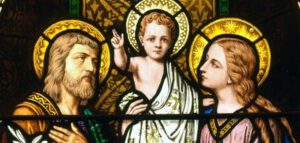
Christian civilisation traditionally grew up on those sublime teachings and achieved a healthy balance between body and spirit down the ages. But alas, with the overpowering rise of godless modernism, haven’t some people grown weary of the teachings that had once nourished them? The consequence of such degradation has been staring us in the face. And with the recent opening of the gates of Europe to hordes of people (refugees, asylum seekers, migrants), some of whom are avowedly spiritual enemies of Christian civilisation (or what is left of it), shouldn't it be reexamined whether the physical needs of the neighbours are more crucial than the spiritual wellbeing of the household?
St Paul was extremely concerned about the spiritual health of his people. In the Second Reading (1 Thes 1: 5-10), he is all praise for the example that the Thessalonians have set to the believers in Macedonia and Achaia. The Word of God sounded forth from them like clarion trumpets and their faith went forth everywhere. God was their highest good, from which the good of neighbour flowed. Hence the Apostle is happy to note how they “turned to God from idols, to serve a living and true God, and to wait for His Son from Heaven, whom He raised from the dead, Jesus who delivers us from the wrath to come.”
Would it be wrong to see God’s wrath in terms of environmental disasters and wars? Aren’t we witnessing veiled religious and spiritual wars? Spiritual warfare is a fact of life; we cannot wish it away. So, it would be necessary to reflect on how far enemies of Christianity can be our ‘neighbours’!... Can they be allowed to hack at the very foundations of Christian civilisation… and we foolishly call it ‘love’? We cannot forget our duty to love God above all things, and the neighbour for God’s sake.
Unto God and Caesar
This Sunday’s Gospel text (Mt 22: 15-21) picks up where we left off last Sunday. The wedding feast parable was a subtle attack on the Jewish authorities. Such was their hatred of Our Lord that even two divergent groups did not think twice before they got together to checkmate Jesus: Herodians, a political party at least outwardly friends with the Roman authorities and indifferent to religion; and the Pharisees, puritanical as regards the Jewish law and traditions, and opposed to Roman rule. Devising a ploy from which it seemed impossible for Jesus to escape, they got some young scholars to pose the following question with guileless simplicity: “Is it lawful to pay taxes to Caesar, or not?”
Jesus was faced with a false dilemma, for to condemn the Roman tax would be to incur the vengeance of those pagan rulers; to consider the tax legitimate would anger the Jews, who had always resented the Roman rule. Seeing through the trick, Jesus asked for a coin, pointed to the image and inscription on it, and promptly replied, keeping his tone light and matter-of-fact: “Render therefore to Caesar the things that are Caesar’s, and to God the things that are God’s.” This exposed the hypocrisy of the Pharisees, who used Roman currency for trade and commerce, yet grudged the payment of tax; so too the Herodians, who could easily be charged with detracting against the Roman authority.
Jesus thus made it clear that while political masters seek taxes God seeks souls. Or as Fulton Sheen points out, “Once again He was saying that His Kingdom was not of this world; that submission to Him is not inconsistent with submission to secular powers; that political freedom is not the only freedom. To the Pharisees who hated Caesar came the command: ‘Give unto Caesar’; to the Herodians who had forgotten God in their love of Caesar came the basic principle: ‘Give unto God.’”[1]
Does that amount to serving two masters? No. The two masters that we cannot serve at the same time are God and Mammon (pleasures of the world included). These we cannot serve alike because they are things opposed to each other; to serve one we often (have to) forego the other. For instance, when it comes to running a business and amassing wealth we may think that ends justify the means, sacrificing even religious worship on Sundays and holy days. On the other hand, serving a legitimate temporal authority is necessary for the smooth functioning of society; it is a different matter if the authority acts immorally and illicitly, but our basic aim should always be to align earthly administration with divine law.
In the ultimate analysis, everything belongs to God, doesn't it? Hence, in the First Reading (Is 45: 1, 4-6), God makes it clear that He is the Lord and there is no other. He is always in control and exercises dominion even over those who do not acknowledge Him. For instance, God had the Persian king Cyrus put an end to Babylonian rule and free the Jews. ‘Anointed’ were the kings of Israel alone, but since Cyrus as God’s instrument in the liberation of Israel is regarded as anointed, too.
To pay God tribute, we ought to sing His praises and “tell among the nations His glory and His wonders among all the peoples.” That is to say, we have to evangelise. We can do so from wherever we are, whatever be our station in life. We can do so without worrying about what we are going to say, for then the Holy Spirit takes charge and guides us. In fact, we can go forth and preach through our actions rather than our words: we can engage in the apostolate of presence. “Preach the Gospel at all times, and if necessary, use words” is a quote commonly attributed to St Francis of Assisi.
But alas, on World Mission Sunday being observed today, it is imperative for us to check the nature and state of our Missions. Is evangelisation happening in reality, that is to say, are we genuinely proclaiming the Gospel message, or is it only an exercise in social service? This day is marked by a special collection taken up to support "missionary projects", but are these the same pious projects that you and I have in mind? Have a look at the links below, to see whether we are "converting" others or "perverting" ourselves! Hence an appeal was recently made by a Lay Catholic faithful organisation, to the Bishops of India, to stop the menace of theological errors being spread under the pretext of "inculturation": https://youtube.com/shorts/kagBOaVfIj0?feature=share and https://www.saveourfaith.com/
In the Second Reading (1 Thes 1: 1-5), St Paul, on behalf of his missionary companions Silvanus and Timothy, and himself, informs the Thessalonians of how he and his own pray and thank God for their “work of faith[2] and labour of love and steadfastness of hope in our Lord Jesus Christ.” Such graces are divine gifts, which we should always appreciate. Just like the Thessalonians, who were newly formed into a faith community, continued to be challenged by paganism all around them, we Christians in the contemporary world are continually confronted by innumerable temptations and traps from a neo-pagan world. So, the lesson to learn is that what we give unto Caesar should by no means prevent us from giving unto God.
----------
[1] Fulton Sheen, Life of Christ (Bangalore: Asian Trading Corporation, 1984), p. 203
[2] This throws up the controversial topic of faith without works.
The Elect to Eternal Life
The Readings of today provide at least a faint background to the goings-on in West Asia, a region long steeped in violence and terrorism. While the Jews claim that the recent attack on Israel has been the deadliest for them since the German Holocaust, one can’t help but think of the Prince of Peace who once walked that way with a promise of great hope for the human race!
God made many several covenants with the people of Israel. In the First Reading (Is 25: 6-10) we note His promises of freedom and celebration on Zion, the mount on which the city of David was built. In its Temple God has promised to unite the peoples of the world. There they will live in harmony, putting behind them pride, hatred, injustice and war. With joy and life replacing mourning and death, the people will sing, “This is the Lord; we have waited for Him; let us be glad and rejoice in His salvation.”
The Lord is none other than Christ our Saviour. David’s Psalm 23, too, famously reminds us that in good times and in bad, in sickness and in health, the Lord is our Good Shepherd. Those who trust in Him shall not want but enjoy green pastures, restful waters, sufficient repose and a joyful spirit. For He is the God of wisdom, strength and kindness; who guides us, walks by our side, comforts, feeds and anoints us. The Psalm spoke warmly to the heart of pastoral Israel.
Jesus’ parable in today’s Gospel text (Mt 22: 1-14) brings the images of the Old Testament closer to us by comparing the Kingdom of Heaven to a sumptuous wedding banquet. The first invitees (representing the Jews, who were the first to hear God’s Word) failed to honour the king’s (God’s) invitation: they not only went about their own petty tasks, but even killed the king’s messengers! Much like the owner of the vineyard, in last Sunday’s parable, the king sent his troops to destroy the murderers and burn their city. Finally, he extended his invitation to the rest of the world (thus announcing the universality of the Kingdom of God), and the wedding hall (His Church) was full.
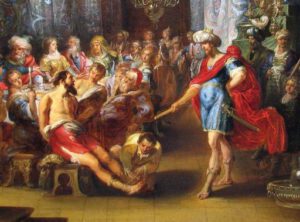
But then again, who is the “man who had no wedding garment”? In those days, all guests were supplied with a robe to wear at the banquet; but here was a stranger, probably a crasher, who either had no robe or had failed to wear one. Not to be taken for a poor man but a guest flouting the norms, he is, quite expectedly, shown the door. In like manner, why won’t those who disregard the Commandments be bound hand and foot and cast into the “outer darkness” (hell), where men “weep and gnash their teeth”?
Jesus makes it clear that the divine invitation is gratis but also exacting. It is the wearing of the garment of Christ in a worthy manner that will entitle us to the heavenly banquet. Even though He has invited all into His tent, only those who have fulfilled the stipulated conditions will be chosen to dine with Him.[1] It is ironical that even at the Last Supper this truth had not dawned on the Apostles!
For that matter, did the Jews remember the parable when Jerusalem and the temple were reduced to rubble in 70 A.D.? And will they now turn a new leaf? God, who is slow to anger and abounding in love, is never discouraged. He continues to make overtures of friendship. Hence, quite significantly, the Jews, themselves a persecuted and dispersed lot, are gathering back in their land after two millennia in exile. This is not to absolve their governments from their continued violence, which is the handiwork of evil men in the Holy Land. Be that as it may, will the Jews finally seize the day and turn to the True God?
Only a profound change of heart can bring about a transformation in the world at large. St Paul refers to the necessary dispositions, in the Second Reading (Phil 4: 12-14, 19-20). He who had received substantial material help from the Philippians was not overly concerned about how he should be living. The message he wishes to highlight is that God is the great Provider of our every need, according to His riches, in marvellous ways, in His Son Jesus. So, when we are with the Good Shepherd, we have nothing to fear; when the Good Lord is with us, none can be against us.
Let us therefore never decline a good invitation; and if it be a divine call, let us accept it wholeheartedly and be steadfast, so as to be counted among the elect to eternal life.
------
[1] This parable has a parallel only in Luke 14: 16-24.
Labouring in the Vineyard
On a third consecutive Sunday[1] we are captivated by the image of the Vineyard. In fact, since times immemorial, prophet after prophet has made use of this charming feature of Israel’s landscape to make a valid point. With grapes as an agricultural item playing an important role in the economy, society, and even in the faith traditions of the Jews, and later of the Christians too, it is no wonder that the Holy Bible abounds in parables relating to the Vineyard.
Bible commentators say that one of the best-known uses of the vineyard symbol in the Old Testament occurs in Isaiah, of which today’s First Reading (Is 5: 1-7) provides the core: “The vineyard of the Lord of hosts is the house of Israel.” Here, Isaiah recalls how the owner (who represents God) tenderly cared for his vineyard (His people Israel). And yet, how did the vineyard respond? By producing wild grapes (unruly behaviour or sin). It is quite natural that the owner should destroy such worthless plantations (quite clearly, symbolic of retribution for sinful human behaviour).
Historically speaking, the retribution that Isaiah hinted at was the Assyrian military attack that the southern kingdom, Judah, was anticipating, just as the northern kingdom of Israel had experienced earlier. The Prophet’s argument was that God had punished Israel for their unfaithfulness; and Judah could well avert its share of problems by changing their ways and strictly following God’s law. Yet, Isaiah is not all that hopeful, for God had once looked for justice but witnessed bloodshed; righteousness, and alas, beheld a cry.
Jesus’ parable in the Gospel text (Mt 21: 33-43) uses the vineyard symbolism with a more palpable human element: it replaces wild grapes with wild tenants. Since they have beaten, stoned, abused and killed the owner’s servants, and even his son, all of whom he had dispatched, in quick succession, he “put[s] those wretches to a miserable death, and let[s] out the vineyard to other tenants who will give him the fruits in their seasons.”
 How loaded with meaning! While the owner here still symbolises God, and the vineyard His people Israel, the ominous part is that the tenants represent officialdom and religious authorities to whom souls have been entrusted. Have they been reliable stewards of God’s property? The son there is the Son of God, Jesus Christ our Lord. Did Israel respect Him? No; they took Him who was the heir, cast him out of the vineyard and killed him. And what about us today? We still do the same every time we reject Him and through other sinful acts.
How loaded with meaning! While the owner here still symbolises God, and the vineyard His people Israel, the ominous part is that the tenants represent officialdom and religious authorities to whom souls have been entrusted. Have they been reliable stewards of God’s property? The son there is the Son of God, Jesus Christ our Lord. Did Israel respect Him? No; they took Him who was the heir, cast him out of the vineyard and killed him. And what about us today? We still do the same every time we reject Him and through other sinful acts.
Alas, while many have embraced the Faith, not all have stayed faithful. Thus, after Israel rejected Jesus, the Faith moved to the West, where it flourished for centuries, fulfilling the words of our Lord and Master: “The kingdom of God will be taken away from you and given to a nation producing the fruits of it.” But, eventually, that part of the world too, after reaping the fruits of Christian Civilisation, was ungrateful and failed to cling to the old rugged Cross. With ever-growing affluence and misplaced confidence, the West slowly but steadily dropped their guards, and finally apostatised. And most worrisome is the fact, as Pope Paul VI put it, way back in 1972, that “the smoke of Satan has entered the Church of God.”
Jesus is that rejected stone whom God has destined to be the cornerstone of salvation: “The very stone which the builders rejected has become the cornerstone; this was the Lord’s doing, and it is marvellous in our eyes.” Presently, the greatest hope comes from the Asian and African continents. For instance, in a nascent sovereign country like East Timor, the people have chosen the Catholic Faith, and this has gone from strength to strength (20% - 98%). For their part, several African nations have been among the staunchest supporters of Catholic morality and discipline, as seen from their brave rejection of homosexuality, transgenderism, divorce, ordination of women, and so on. Their Cardinals assert themselves at the Vatican and their people at home are among those who show God’s Vineyard as an image of hope.
Finally, even while social, political, economic and environmental issues on our fragile planet are beginning to assume apocalyptic proportions, we must be people of hope – not grapes of wrath but of sweetness. Elsewhere in the Bible, Jesus says, “I am the Vine, you are the branches” (Jn 15: 5). In the Apostolic Age there was a question on whether values of the Greco-Roman pagan civilisation could be absorbed. In response, St Paul appealed to the Philippians to exercise discernment about what is true, honourable, just, pure, lovely, gracious, excellent and worthy of praise. One more reason to take seriously the Apostle of the Gentiles’ exhortation in the Second Reading (Phil 4: 6-9): “Have no anxiety about anything, but in everything by prayer and supplication with thanksgiving let your requests be made known to God. And the peace of God, which passes all understanding, will keep your hearts and your minds in Christ Jesus.”
------------------------
[1] As an exception this year, the Readings of the twenty-sixth Sunday pertained to the Feast of St Thérèse of the Child Jesus.
Mission of Love
As India is a Mission field, the Mass Readings of this Sunday pertain to the Feast of the Patroness of the Missions: St Teresa of the Child Jesus and the Holy Face, or of the Little Flower, also known as Thérèse of Lisieux.[1]

Three amazing Carmelite Teresas are saints of the Catholic Church, whose feasts take place between August and October: Teresa of Ávila (1515-1582), Thérèse of Lisieux (1873-1897) and Teresa Benedicta of the Cross, née Edith Stein (1891-1942). The first one was the founder of the Order of the Discalced Carmelites; the second and the third were nuns of the same Order.
St Thérèse of Lisieux was born Marie-Françoise Thérèse Martin, in Alençon, France, the youngest of nine children, five of whom survived childhood and became nuns. Thérèse entered the Carmelite convent at Lisieux, where she was outwardly unremarkable, even a little problematic in the worldly sense, and so initially misunderstood. The story of her spiritual development became well known thanks to her autobiography, written by order of the prioresses. It was published in 1898, a year after her death by tuberculosis, under the title Histoire d’une âme (“Story of a Soul”) and became an instant bestseller.
Thérèse died very young and without ever having left the cloister, yet, two years after her canonisation in 1925, Pope Pius XI proclaimed her Patroness of the Universal Missions, alongside St Francis Xavier, a tireless Jesuit missionary in India and Japan. Why? Because “what makes a missionary are not the legs but the heart!”[2] They are missionaries whose hearts burn with love for Christ and zeal to save souls by love. In fact, St Thérèse is well known for teaching the Little Way of Spiritual Childhood, or simply ‘The Little Way’. It is the sacrifice of ourselves to God’s love, as we learn to seize every opportunity in our daily life to be an example of love. In her words, it is “the way of spiritual childhood, the way of trust and absolute surrender”.
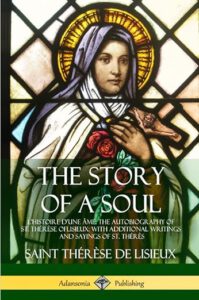 These biographical details help us to understand the choice of today’s Readings. The First Reading (Is 66: 10-14) brings forth an intimate image – that of Jerusalem giving suck like a mother. Jerusalem is not just a physical place but a metaphor for all that Christians look forward to: a paradise to be attained after death. Jerusalem is where the nations of the world will finally come and seek the Lord of Hosts! The Reading is therefore very reassuring for the Missions and missionaries.
These biographical details help us to understand the choice of today’s Readings. The First Reading (Is 66: 10-14) brings forth an intimate image – that of Jerusalem giving suck like a mother. Jerusalem is not just a physical place but a metaphor for all that Christians look forward to: a paradise to be attained after death. Jerusalem is where the nations of the world will finally come and seek the Lord of Hosts! The Reading is therefore very reassuring for the Missions and missionaries.
The Second Reading (1 Cor 13: 4-13) is also pertinent. In her Story of a Soul, St Thérèse writes: “In spite of my littleness, I have the vocation of the apostle. I would like to travel over the whole earth to preach your name and plant your cross on pagan soil. But O my Beloved, one mission alone would not be sufficient for me, I would want to preach the Gospel on all the five continents simultaneously and even to the most remote isles! I would be a missionary, not for a few years only, but from the beginning of creation until the consummation of the ages… O my Jesus, what is your answer to all my follies?”
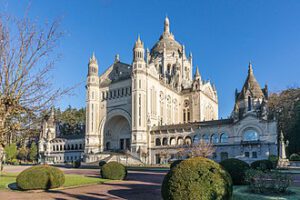
It is said that she got the answer upon meditating on chapters 12 and 13 of St Paul’s First Letter to the Corinthians: she understood that there are different kinds of spiritual gifts, but the same Spirit gives them; that there are different ways of serving, but the same Lord is served. It is like Christ Who is a single body with many parts; and nonetheless it is just one body. Thérèse had what it takes to be an authentic Christian: love, the greatest of the three theological virtues, and the vocation to serve with love from wherever she was.
St. Thérèse loved nature, and often used the imagery of nature to explain how the Divine Presence is everywhere, and how everything is connected in God’s loving care. She saw herself as “the Little Flower of Jesus” (hence, she is a patron of the florists, too), like the simple wild flowers in fields and forests, rather than a brilliant rose or an elegant lily, yet growing and giving glory to God.[3] Apt, therefore, is the Gospel text, in which Jesus says: “Truly, I say to you, unless you turn and become like children, you will never enter the kingdom of Heaven.”
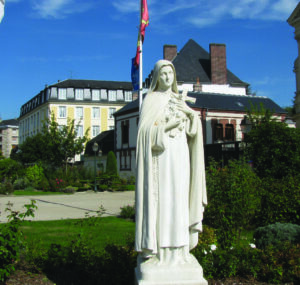
There is no doubt that those who humble themselves will be exalted. In 1997, on her death centenary, she became the youngest person to be designated a Doctor of the Church, and the second Carmelite nun to receive that distinction after St Teresa of Ávila. On this occasion, Pope John Paul II in his Apostolic Letter Divini amoris scientia elucidated what he called Thérèse’s “science of love”:
“The spiritual doctrine of Thérèse of Lisieux has helped extend the kingdom of God. By her example of holiness, of perfect fidelity to Mother Church, of full communion with the See of Peter, as well as by the special graces obtained by her for many missionary brothers and sisters, she has rendered a particular service to the renewed proclamation and experience of Christ’s Gospel and to the extension of the Catholic faith in every nation on earth.”[4]
St Thérèse is thus perfectly justified to be Patroness of the Missions. But how would she look at the Mission field today? This is a very crucial question, better left for another day.
------------
[1] Her feast day in the General Roman Calendar was 3 October, from 1927 until it was moved, in 1969, to 1 October.[2] https://sspx.org/en/news-events/news/why-st-therese-patroness-missions-17832
[3] Cf. https://www.littleflower.org/st-therese/frequently-asked-questions/
[4] No. 10 https://www.vatican.va/content/john-paul-ii/en/apost_letters/1997/documents/hf_jp-ii_apl_19101997_divini-amoris.html
God above all else
Today’s Readings are yet another lesson in God’s attributes and the kingdom of Heaven that is far beyond all we can imagine. We for our part have to bloom where we are planted, always giving praise and thanks to God for the infinite variety of benefits, blessings and graces received.
The First Reading (Is 55: 6-9) is taken from the last part of the second Book of Isaiah. After God lets His people go into exile, He calls them to conversion. Their exile, albeit temporary, is a time of trial, not unfamiliar to us in our valley of tears. It is always a good idea, then, to let ourselves be conquered by His boundless love for us. All we have to do is align ourselves with Him, and never seek to bend His teachings to suit our personal tastes.
But alas, instead of thus exercising humility and justice, we see man offending God times without number. Some people equate the natural with the supernatural, while others don’t even acknowledge the supernatural. Yet others talk of justice in the same breath as they abuse their neighbour; they worship power and money, readily becoming slaves to both, not to speak of those who curry favour with false gods and fail to honour the true God they have known since baptism.
The true God, says the Psalm, is highly to be praised and his greatness immeasurable. It is foolish to imagine that we can count equality with Him, yet He is close to all who call Him. And, as St Paul says, if God is for us, who can be against us? (Cf. Rom 8: 31) Hence, not only love for God, it is a rewarding spiritual exercise to cultivate deep faith, hope and trust in Him. There is no better antidote to fear, tension, stress, and all that bedevils us. He who knows how many hairs are on our head takes care of us.
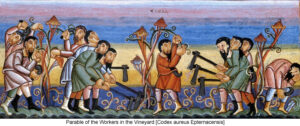
In the Gospel (Mt 20: 1-16), Jesus illustrates the fact that God’s thoughts are not our thoughts, and His ways not ours! The parable He recounts shows not a grudging but a generous God – who treats each according to their needs; a God not mathematical in his dealings but magnanimous – and who never fails us; far from egalitarian but extremely empathetic – who comforts and heals. God is the Lord and Master of the universe; the immense difference between Him and us cannot be wished away.
The Gospel text may be a shocker to the world’s paymasters and economists; yet, it is more about the Kingdom of Heaven, where rewards follow a different economy! We are not to expect God to pay us according to what we perceive to be our merits; in fact, He knows our backstory better than we do. That is how Jesus revealed to the Pharisees that the goodness of God goes beyond human criteria of compensation and that divine reward is not in keeping with salaries paid by human standards.
This applies not only to individuals, but to societies and nations too. Indeed, the verse that reads “the last will be the first, and the first last” underlines the fact that pagan nations, who were the last to be called by God, have taken precedence over the Jews, who had been called first but rejected Him. And some Bible editions add: “For many are called, but few chosen.” A lesson to remember!
Finally, St Paul’s pithy statement in the Second Reading (Phil 1: 20-24, 27) says it all: “To me, to live is Christ, and to die is gain.” Presently in prison, if they let him live, he promises to work for Christ, and if dead, He would be with Him in Heaven anyway. So, he would be happy either way. To us, maybe the woods are lovely, dark and deep – as the Poet would say – and we have promises to keep, and miles to go before we sleep... At any rate, if through our life we have had God above all else, when we finally do sleep, we will be with Him anyway!
Banner: Mass of Saint Gregory the Great by Master of Portillo (1520-1525). https://rb.gy/qhikf
